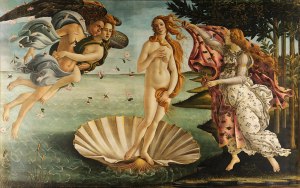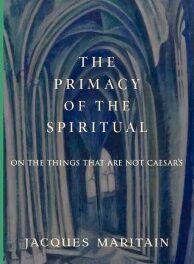We support our Publishers and Content Creators. You can view this story on their website by CLICKING HERE.
Let the Church do for Literature in one way what she does for Science in another; each has its imperfection, and she has her remedy for each. She fears no knowledge, but she purifies all; she represses no element of our nature, but cultivates the whole.
The Idea of a University, by John Henry Newman (Cluny Media, 470 pages)
If Physical Science be dangerous, as I have said, it is dangerous because it necessarily ignores the idea of moral evil; but Literature is open to the more grievous imputation of recognizing and understanding it too well. Some one will say to me perhaps: “Our youth shall not be corrupted. We will dispense with all general or national Literature whatever, if it be so exceptionable; we will have a Christian Literature of our own, as pure, as true, as the Jewish.” You cannot have it: I do not say you cannot form a select literature for the young, nay, even for the middle or lower classes; this is another matter altogether: I am speaking of University Education, which implies an extended range of reading, which has to deal with standard works of genius, or what are called the classics of a language: and I say, from the nature of the case, if Literature is to be made a study of human nature, you cannot have a Christian Literature. It is a contradiction in terms to attempt a sinless Literature of sinful man. You may gather together something very great and high, something higher than any Literature ever was; and when you have done so, you will find that it is not Literature at all. You will have simply left the delineation of man, as such, and have substituted for it, as far as you have had anything to substitute, that of man, as he is or might be, under certain special advantages. Give up the study of man, as such, if so it must be; but say you do so. Do not say you are studying him, his history, his mind and his heart, when you are studying something else. Man is a being of genius, passion, intellect, conscience, power. He exercises these various gifts in various ways, in great deeds, in great thoughts, in heroic acts, in hateful crimes. He founds states, he fights battles, he builds cities, he ploughs the forest, he subdues the elements, he rules his kind. He creates vast ideas and influences many generations. He takes a thousand shapes and undergoes a thousand fortunes. Literature records them all to the life,
Quicquid agunt homines, votum, timor, ira, voluptas.
Gaudia, discursus…
He pours out his fervid soul in poetry; he sways to and fro, he soars, he dives, in his restless speculations; his lips drop eloquence; he touches the canvas, and it glows with beauty; he sweeps the strings, and they thrill with an ecstatic meaning. He looks back into himself, and he reads his own thoughts, and notes them down; he looks out into the universe, and tells over and celebrates the elements and principles of which it is the product.
Such is man: put him aside, keep him before you; but, whatever you do, do not take him for what he is not, for something more divine and sacred, for man regenerate. Nay, beware of showing God’s grace and its work at such disadvantage as to make the few whom it has thoroughly influenced compete in intellect with the vast multitude who either have it not or use it ill. The elect are few to choose out of, and the world is inexhaustible. From the first, Jabel and Tubalcain, Nimrod “the stout hunter,” the learning of the Pharaohs, and the wisdom of the East country, are of the world. Every now and then they are rivalled by a Solomon or a Beseleel, but the habitat of natural gifts is the natural man. The Church may use them, she cannot at her will originate them. Not till the whole human race is made new will its literature be pure and true. Possible of course it is in idea, for nature, inspired by heavenly grace, to exhibit itself on a large scale, in an originality of thought or action, even far beyond what the world’s literature has recorded or exemplified; but, if you would in fact have a literature of saints, first of all have a nation of them.
What is a clearer proof of the truth of all this than the structure of the Inspired Word itself? It is undeniably not the reflection or picture of the many, but of the few; it is no picture of life, but an anticipation of death and judgment. Human literature is about all things, grave or gay, painful or pleasant; but the Inspired Word views them only in one aspect, and as they tend to one scope. It gives us little insight into the fertile developments of mind; it has no terms in its vocabulary to express with exactness the intellect and its separate faculties: it knows nothing of genius, fancy, wit, invention, presence of mind, resource. It does not discourse of empire, commerce, enterprise, learning, philosophy, or the fine arts. Slightly too does it touch on the more simple and innocent courses of nature and their reward. Little does it say4 of those temporal blessings which rest upon our worldly occupations and make them easy; of the blessings which we derive from the sunshine day and the serene night, from the succession of the seasons, and the produce of the earth. Little about our recreations and our daily domestic comforts; little about the ordinary occasions of festivity and mirth, which sweeten human life; and nothing at all about various pursuits or amusements, which it would be going too much into detail to mention. We read indeed of the feast when Isaac was weaned, and of Jacob’s courtship, and of the religious merry-makings of holy Job; but exceptions, such as these, do but remind us what might be in Scripture, and is not. If then by Literature is meant the manifestation of human nature in human language, you will seek for it in vain except in the world. Put up with it, as it is, or do not pretend to cultivate it; take things as they are, not as you could wish them.
Nay, I am obliged to go further still; even if we could, still we should be shrinking from our plain duty, Gentlemen, did we leave out Literature from Education. For why do we educate, except to prepare for the world? Why do we cultivate the intellect of the many beyond the first elements of knowledge, except for this world? Will it be much matter in the world to come whether our bodily health or whether our intellectual strength was more or less, except of course as this world is in all its circumstances a trial for the next? If then a University is a direct preparation for this world, let it be what it professes. It is not a Convent, it is not a Seminary; it is a place to fit men of the world for the world. We cannot possibly keep them from plunging into the world, with all its ways and principles and maxims, when their time comes; but we can prepare them against what is inevitable; and it is not the way to learn to swim in troubled waters, never to have gone into them. Proscribe (I do not merely say particular authors, particular works, particular passages) but Secular Literature as such; cut out from your class books all broad manifestations of the natural man; and those manifestations are waiting for your pupil’s benefit at the very doors of your lecture room in living and breathing substance. They will meet him there in all the charm of novelty and all the fascination of genius or of amiableness. Today a pupil, tomorrow a member of the great world: today confined to the Lives of the Saints, tomorrow thrown upon Babel—thrown on Babel, without the honest indulgence of wit and humor and imagination having ever been permitted to him, without any fastidiousness of taste wrought into him, without any rule given him for discriminating “the precious from the vile,” beauty from sin, the truth from the sophistry of nature, what is innocent from what is poison. You have refused him the masters of human thought, who would in some sense have educated him, because of their incidental corruption: you have shut up from him those whose thoughts strike home to our hearts, whose words are proverbs, whose names are indigenous to all the world, who are the standard of their mother tongue, and the pride and boast of their countrymen, Homer, Ariosto, Cervantes, Shakespeare, because the old Adam smelt rank in them; and for what have you reserved him? You have given him “a liberty unto” the multitudinous blasphemy of his day; you have made him free of its newspapers, its reviews, its magazines, its novels, its controversial pamphlets, of its Parliamentary debates, its law proceedings, its platform speeches, its songs, its drama, its theatre, of its enveloping, stifling atmosphere of death. You have succeeded but in this—in making the world his University.
Difficult then as the question may be, and much as it may try the judgments and even divide the opinions of zealous and religious Catholics, I cannot feel any doubt myself, Gentlemen, that the Church’s true policy is not to aim at the exclusion of Literature from Secular Schools, but at her own admission into them. Let her do for Literature in one way what she does for Science in another; each has its imperfection, and she has her remedy for each. She fears no knowledge, but she purifies all; she represses no element of our nature, but cultivates the whole. Science is grave, methodical, logical; with Science then she argues, and opposes reason to reason. Literature does not argue, but declaims and insinuates; it is multiform and versatile: it persuades instead of convincing, it seduces, it carries captive; it appeals to the sense of honor or to the imagination or to the stimulus of curiosity; it makes its way by means of gaiety, satire, romance, the beautiful, the pleasurable. Is it wonderful that with an agent like this the Church should claim to deal with a vigor corresponding to its restlessness, to interfere in its proceedings with a higher hand, and to wield an authority in the choice of its studies and of its books which would be tyrannical if reason and fact were the only instruments of its conclusions? But, anyhow, her principle is one and the same throughout: not to prohibit truth of any kind, but to see that no doctrines pass under the name of Truth but those which claim it rightfully.
Republished with gracious permission from Cluny Media.
Imaginative Conservative readers may use the code IMCON15 to receive 15% off any order of not-already discounted books from Cluny Media.
The Imaginative Conservative applies the principle of appreciation to the discussion of culture and politics—we approach dialogue with magnanimity rather than with mere civility. Will you help us remain a refreshing oasis in the increasingly contentious arena of modern discourse? Please consider donating now.
The featured image is “A View of Oxford” (mid-19th century), by William Turner of Oxford, and is in the public domain, courtesy of Wikimedia Commons.

 Conservative
Conservative  Search
Search Trending
Trending Current News
Current News 





